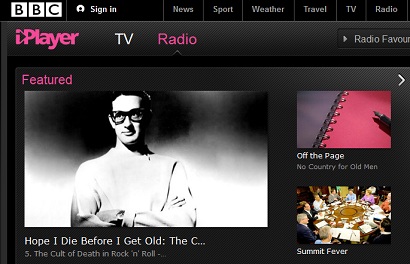At last year’s World Editors Forum in Vienna we reported on the 10 great tips shared by Mario Garcia, founder of Garcia Media, on creating news apps.
At this year’s event in Kiev Garcia is back, and he shared with delegates some of the lessons learned in the past couple of years when it comes to storytelling on tablet devices.
In summary, here are just six of the takeaways to be gained from his presentation:
- The editor today needs to undertand the sociology of how readers use tablet platforms and remember the multimedia approach
Garcia urged editors to not think it is all about the newspaper. “No one expects to have the breaking news there,” he said.
In the eyes of consumer, digital is current, print is old, not abandoned, but old.
… Still newspapers write headlines as if they’re the only forms of communication these days.
He added that news outlets need to show they are a multimedia house. Therefore “no marketing campaign should be based on one of the platforms”.
- Be visual and make something happen
A main point made by Garcia was about the importance of the visual element on tablet devices, where users “don’t just want a photo”, he said. “They want something to happen”.
He suggested that every four or five screens users should be offered “a moment where the finger touches the screen and something happens”.
Whatever it is, in the tablet you can not be linear.
… If all you do is turn the pages, readers will not be happy.
Garcia also referred to a Poynter study due to be published in the next few weeks, which found the majority of people preferred the “flipboard” visual style, with photo galleries and videos.
- The story is what counts
While lessons have been learned about tablet storytelling, content remains king.
Garcia offered a new definiton of news, as “anything you know now that you did not know 15 minutes ago, or 15 seconds ago”.
And this piece of news is “what counts”, not the platform it is distributed on.
- Understand the pattern of consumption during the day
Garcia said research shows most people use tablets after 6pm in the evening, while the average person reading on the tablet at night has the television on at the same time.
- Users are willing to pay on tablets
The research also found that those who use tablets are more willing to pay for content than online users.
With that in mind, he highlighted the potential for news outlets – bearing in mind the 85 million iPads in the market today, which he said may reach “more than 165 million soon”. Find the perfect site to gamble online – Australian online casinos
- Print has not been abandoned
And despite all this, “there is a place for print as a lean-back platform,” Garcia stressed. “Print is eternal, but only if it adapts”.
And “paper has the power of disconnect”, with print readers able to “totally unplug and read.”



